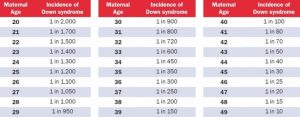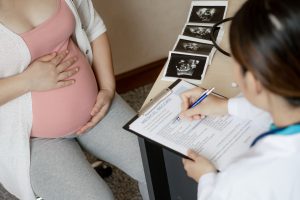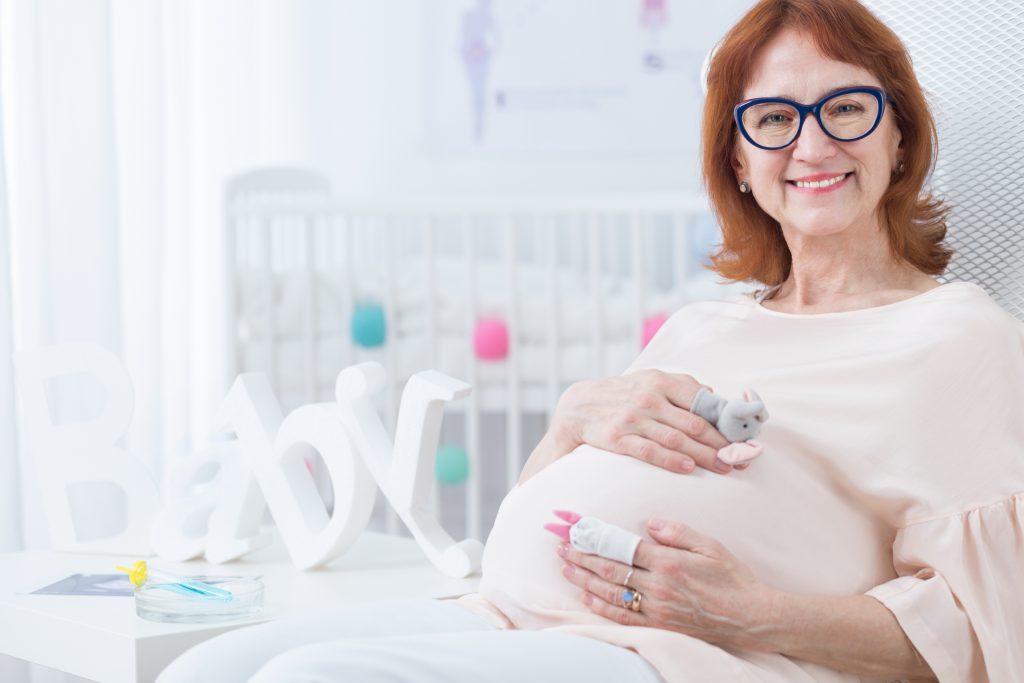Did you know that once you have reached the age of 35, you are then referred to as “Advance Maternal Age” or even sometimes known as a “Geriatric Pregnancy”?
Once you are 35 years and older you are then placed within the high-risk category in pregnancy and birth regardless of how fit and healthy you may be. Although numbers show this has not deterred “Mature Age” women, these days it seems more and more women are choosing to leave it until later in life to start their family.
There are several reasons why women are delaying parenthood from financial uncertainty to having a career, therefore advance maternal age is on the rise. There seems to be so much pressure placed on women today to have it all, between having a career, finding the right partner and then having a family the biological clock seems to tick louder and louder.
So statistically what are the real risks to these women who are having their babies after the age of 35 and why should they get the facts?
Fact is that age is one of the most important factors in conceiving and having a healthy child. Research shows that by the time a woman reaches the age of 35 (Advanced Maternal Age) the chances of her falling pregnant naturally, has started to decline. For most women their fertility begins to slowly decline in their early 30’s, it then speeds up more rapidly in the late 30’s early 40’s and continues to decline as they get older.
A woman is born with all the eggs she will ever have, and as a female ages, the quality and amount of eggs she has left dramatically decreases, therefore this limits her chances of conceiving and having a healthy and successful pregnancy. This will also affect how long it can take to conceive, the longer it takes, may then also increase the need for fertility treatment. It is recommended if you are over the age of 35 and have been trying to conceive for more than 6 months, you should contact your health provider for advice.
There are other reasons women are choosing to birth later in life.
One is genetic disorders and the risk of giving birth to a child with genetic abnormality increases. Older women are at risk of Trisomy 21 also known as Down Syndrome, this is a chromosomal disorder caused by an error in the cell division resulting in an additional chromosome. Women in the high risk category are offered 2 tests, one in the first trimester, which consists of a blood test and ultrasound, however this test is not conclusive, although it will give a risk rate, which if the woman’s test results come back high risk, she then has the option to go on to have a more intrusive test.
There are 3 to choose from and these are Amniocentesis, Chorionic Villus Sampling (CVS), and percutaneous umbilical blood sampling (PUBS), where the Dr will insert a thin needle into the abdomen and extract either, amniotic fluid, cells or cord blood. All of these tests are relatively safe procedures but do carry the slight risk of miscarriage. Statistics show the rate of having a baby full term with down syndrome at the age of 25 are 1 in 1200, then the risk increases to 1 in 350 in woman aged 35 it then continues to rise as the woman gets older.

Induction of labour (IOL) is another so called pitfall an older pregnant woman may face, due to the fact most doctors do not like for a pregnancy to go for more than 40 weeks, especially if the woman is of advance maternal age, therefore before falling pregnant it is a good idea to look into your birthing options in your area, and finding an appropriate medical professional that will listen to your birthing preferences.
Having a clear birth plan and consider having a Doula. Research shows that hiring a Doula for your pregnancy and having them present at your birth can all help reduce the need for unnecessary medical interventions including unwanted vaginal exams, unwanted pain relief and induction.
In Advanced Maternal Aged (AMA) women, the chance of developing gestational diabetes, which only occurs during pregnancy does rise, therefore this may cause babies to be born prematurely. If left untreated it can contribute to the baby growing a lot larger than average, which in the medical profession’s eyes may cause more difficulties when birthing the baby as well as complications to baby after being born. Keep in mind, it seems there is more chance of a woman developing Gestational Diabetes if she is overweight than if she is older than 35.
So we have covered some of the downsides of being in the Advanced Maternal Age category, and we know that the ideal time frame from a “biological” viewpoint may well differ from the social, emotional and financial viewpoint.
You are probably asking yourself are there any positives and benefits of being an older parent?
Well yes, there are a few, and research from Aarhus University in Denmark has shown that older mums are less likely to have children with social, emotional and behavioural issues. The research showed that these women are worrying less during pregnancy and focusing more positively on becoming a parent.

Another positive from a study in the Menopause Journal found that older mothers are more likely to live longer. Most older parents have more financial security, more life experiences, more patience and overall older parents tend to spend more time with their children.
As an “Advanced Maternal Age” mother myself, I certainly don’t feel as though I am passed my use by date, and as I researched all my options, having children after the age of 35 years old sat comfortably with me. But ok, yes there seem to be many more cons then pros, so please do your research and weigh up what is the best choice for YOU.
Understanding your rights and options as a pregnant woman is vital, no matter your age. And at the end of the day it is a mother’s choice, to decide when she wants to try to conceive, fall pregnant, birth her babies and she should be supported no matter her age.
Hello, my name is Tanya Marie and I am a doula who has trained at the Doula Training Academy. If you would like to talk more about your birthing options, please contact me:
Business name: Sacred Earth Birthing
Business Website: www.sacredearthbirthing
Business email: [email protected]
Facebook: www.facebook.com/sacredearthbirthing
Instagram: www.instagram.com/sacred.earth.birthing
Resources and references
http://www.mothers35plus.co.uk/down.htm
https://en.wikipedia.org/wiki/File:Age-and-miscarriage.png
https://medlineplus.gov/lab-tests/down-syndrome-tests/
https://www.alanahealthcare.com.au/advanced-maternal-age/
https://www.mayoclinic.org/healthy-lifestyle/getting-pregnant/in-depth/pregnancy/art-20045756
https://www.nbcnews.com/better/health/5-advantages-being-older-parent-ncna775581
https://www.ncbi.nlm.nih.gov/pubmed/26241426

